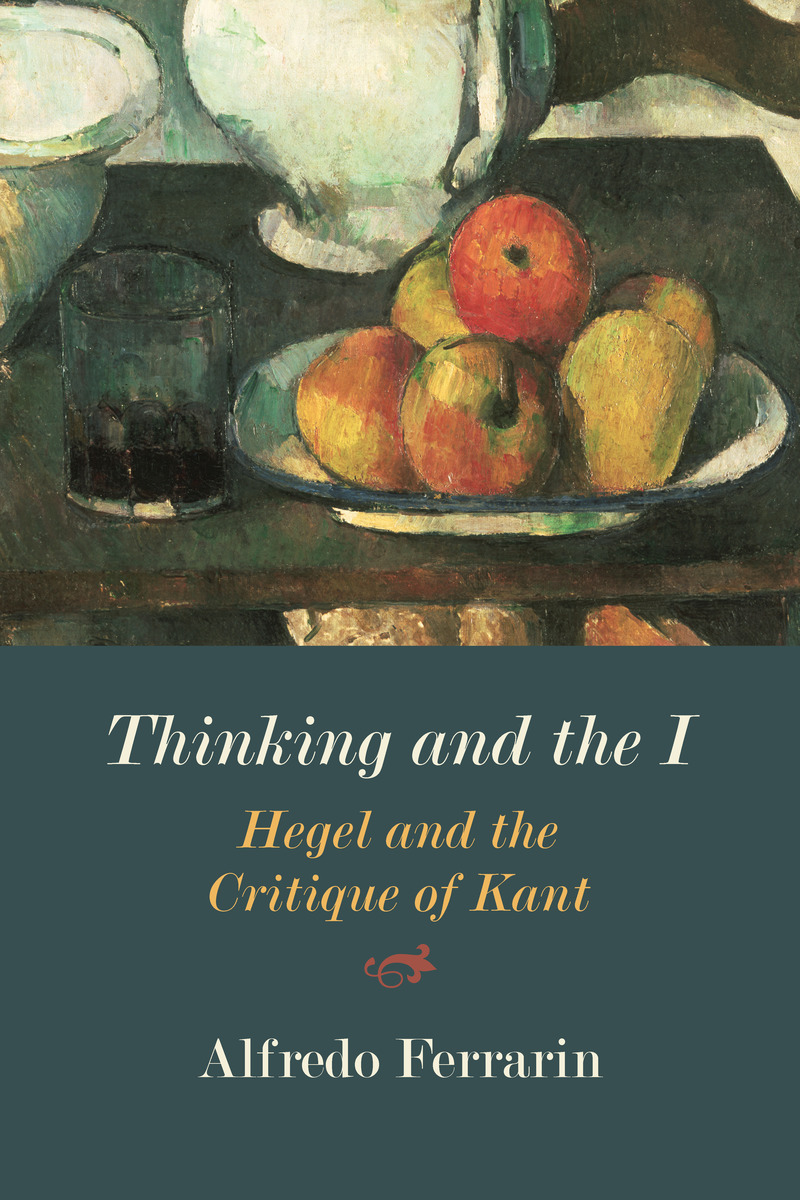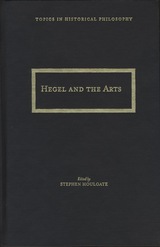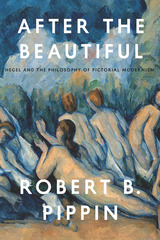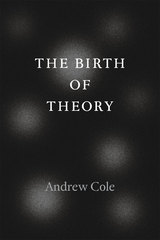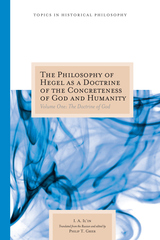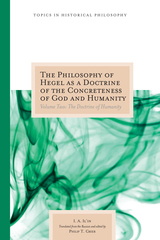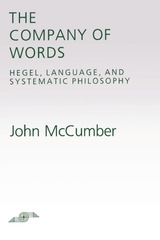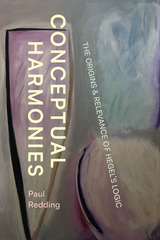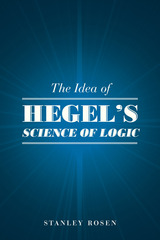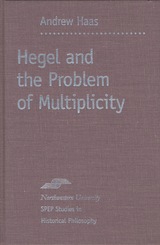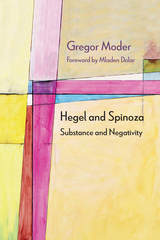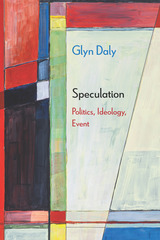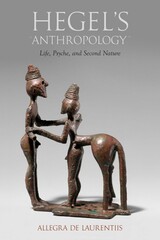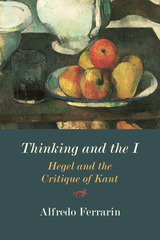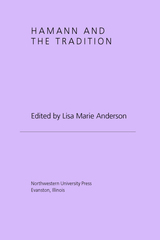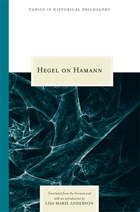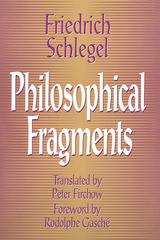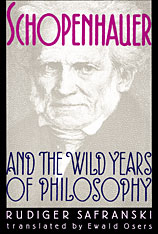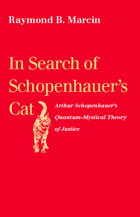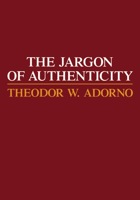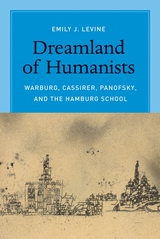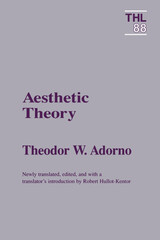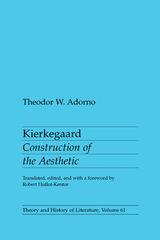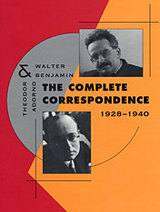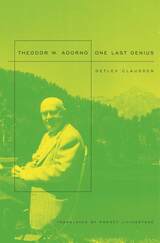“This book is an original, intelligent and impressively erudite study of Hegel’s conception of thought. Ferrarin argues persuasively that thought, for Hegel, is not just an activity of the I, but is ‘the logic animating the world’ that comes to know itself through the I. He also challenges current orthodoxy by arguing that Hegel’s conception of thought is much closer to Kant’s conception of reason than Hegel recognized. This deeply thought-provoking book is a refreshing and very welcome contribution to the scholarship on Hegel and Kant and to philosophy more broadly.” —Stephen Houlgate, author of Hegel's Phenomenology of Spirit
“Ferrarin's much discussed book promises to enrich our views on Hegel's concept of thinking and the relationship with Kant in fundamentally new ways." —Angelica Nuzzo, author of Approaching Hegel's Logic, Obliquely. Melville, Molière, Beckett
“If we are willing to jettison our ordinary conception of thinking and adopt Hegel's philosophic perspective, we discover that ‘rationality is in the world, not in our sciences alone.’ Ferrarin's remarkable book is thus ultimately in service of that quintessentially Hegelian aim of being-at-home in the world. Yet, as Ferrarin reminds us, to comprehend that there is, in fact, nothing ‘thoroughly other’, nothing wholly alien to mind requires ascending to the heights of absolute spirit, to the thought of thought thinking itself.” —Paul T. Wilford, Kantian Review
— -
"[Ferrarin] explores what it might look like to put Kant and Hegel in deeper conversation with each other with regard to reason and the nature of subjectivity. This move has the effect of making room for a productive, critical reevaluation of Hegel’s handling (and occasional mishandling) of some of Kant’s arguments about reason and for using that reevaluation as a starting point for a fresh understanding of Hegel’s conception of thought." —L. Bernhardt, University of Southern Indiana for CHOICE
"It seems inconceivable that Kant had read the Phenomenology, or the Science of Logic, and would then afterwards have been able to have a philosophical discussion with Hegel about it. This inconceivability is not due to our lack of imagination but has a fundamentum in re, which needs explanation. One of the things I liked very much about Ferrarin’s book is that he takes on the challenge to give such an explanation. The first part of this explanation . . . is an exposition of one element of Hegel’s philosophy that sets him radically apart from the Kantian and pre-Kantian tradition, namely his account of thought as something that is 'objective' in a sense that is incompatible with its traditional description as an activity of the self-conscious subject. The other part is a diagnosis and criticism of Hegel’s own engagement with Kant’s philosophy . . . Ferrarin shows in great detail and with admirable exegetical subtlety how many of Hegel’s characterizations of Kant’s system are based on a rather superficial, uncharitable, and simplistic reading of Kant’s writings. Moreover, Ferrarin argues that surprisingly many of Hegel’s critical responses and alleged alternatives to what he sees in Kant can already be found in Kant himself. Given the resulting more charitable understanding of Kant, the differences between their philosophies are less insurmountable and a meaningful dialogue can begin—if not between Kant and Hegel, then between contemporary inhabitants of planet Kant and planet Hegel." —Tobias Rosefeldt, SGIR Review
"It is a great merit of Ferrarin's book to blend systematic argument with careful attention to philological detail. Moreover, its procedure is truly dialectical insofar as crucial concepts are not taken as fixed at the outset, but their content is developed in the course of the argument. This alone makes the book deeply rewarding for anyone interested in a Hegelian take on thinking and the I." —Christian Martin, European Journal of Philosophy
— -
"Ferrarin’s book is a clear and persuasive explanation of the meaning of Hegel’s surprising phrase 'objective thought.' Thanks to a comparison of Kant’s and Hegel’s conceptions of thinking and reason, Ferrarin shows that Hegel develops a totally new concept of subjectivity and deconstructs the usual 'logic of the I.'" —Jean-François Kervégan, University Paris 1-Sorbonne
— -
"Ferrarin’s book is a clear and persuasive explanation of the meaning of Hegel’s surprising phrase 'objective thought.' Thanks to a comparison of Kant’s and Hegel’s conceptions of thinking and reason, Ferrarin shows that Hegel develops a totally new concept of subjectivity and deconstructs the usual 'logic of the I.'" —Jean-François Kervégan, University Paris 1-Sorbonne
— -
“This book is an original, intelligent and impressively erudite study of Hegel’s conception of thought. Ferrarin argues persuasively that thought, for Hegel, is not just an activity of the I, but is ‘the logic animating the world’ that comes to know itself through the I. He also challenges current orthodoxy by arguing that Hegel’s conception of thought is much closer to Kant’s conception of reason than Hegel recognized. This deeply thought-provoking book is a refreshing and very welcome contribution to the scholarship on Hegel and Kant and to philosophy more broadly.” —Stephen Houlgate, author of Hegel's Phenomenology of Spirit
“Ferrarin's much discussed book promises to enrich our views on Hegel's concept of thinking and the relationship with Kant in fundamentally new ways." —Angelica Nuzzo, author of Approaching Hegel's Logic, Obliquely. Melville, Molière, Beckett
“If we are willing to jettison our ordinary conception of thinking and adopt Hegel's philosophic perspective, we discover that ‘rationality is in the world, not in our sciences alone.’ Ferrarin's remarkable book is thus ultimately in service of that quintessentially Hegelian aim of being-at-home in the world. Yet, as Ferrarin reminds us, to comprehend that there is, in fact, nothing ‘thoroughly other’, nothing wholly alien to mind requires ascending to the heights of absolute spirit, to the thought of thought thinking itself.” —Paul T. Wilford, Kantian Review
— -
"[Ferrarin] explores what it might look like to put Kant and Hegel in deeper conversation with each other with regard to reason and the nature of subjectivity. This move has the effect of making room for a productive, critical reevaluation of Hegel’s handling (and occasional mishandling) of some of Kant’s arguments about reason and for using that reevaluation as a starting point for a fresh understanding of Hegel’s conception of thought." —L. Bernhardt, University of Southern Indiana for CHOICE
"It seems inconceivable that Kant had read the Phenomenology, or the Science of Logic, and would then afterwards have been able to have a philosophical discussion with Hegel about it. This inconceivability is not due to our lack of imagination but has a fundamentum in re, which needs explanation. One of the things I liked very much about Ferrarin’s book is that he takes on the challenge to give such an explanation. The first part of this explanation . . . is an exposition of one element of Hegel’s philosophy that sets him radically apart from the Kantian and pre-Kantian tradition, namely his account of thought as something that is 'objective' in a sense that is incompatible with its traditional description as an activity of the self-conscious subject. The other part is a diagnosis and criticism of Hegel’s own engagement with Kant’s philosophy . . . Ferrarin shows in great detail and with admirable exegetical subtlety how many of Hegel’s characterizations of Kant’s system are based on a rather superficial, uncharitable, and simplistic reading of Kant’s writings. Moreover, Ferrarin argues that surprisingly many of Hegel’s critical responses and alleged alternatives to what he sees in Kant can already be found in Kant himself. Given the resulting more charitable understanding of Kant, the differences between their philosophies are less insurmountable and a meaningful dialogue can begin—if not between Kant and Hegel, then between contemporary inhabitants of planet Kant and planet Hegel." —Tobias Rosefeldt, SGIR Review
"It is a great merit of Ferrarin's book to blend systematic argument with careful attention to philological detail. Moreover, its procedure is truly dialectical insofar as crucial concepts are not taken as fixed at the outset, but their content is developed in the course of the argument. This alone makes the book deeply rewarding for anyone interested in a Hegelian take on thinking and the I." —Christian Martin, European Journal of Philosophy
— -
